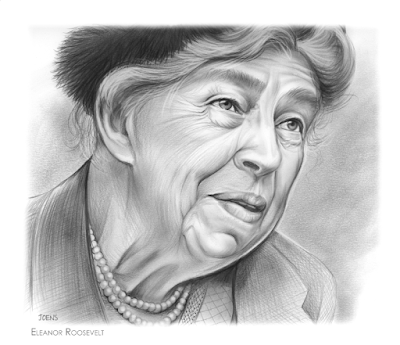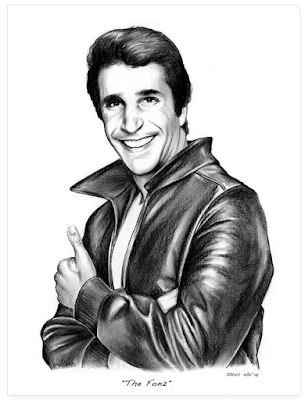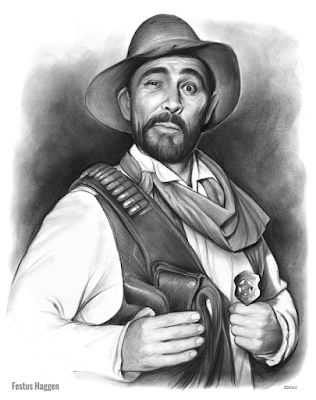Anna Eleanor Roosevelt.
(October 11, 1884 – November 7, 1962) was an American politician, diplomat, and activist. She was the longest-serving First Lady of the United States, holding the post from March 1933 to April 1945 during her husband President Franklin D. Roosevelt's four terms in office, and served as United States Delegate to the United Nations General Assembly from 1945 to 1952. President Harry S. Truman later called her the "First Lady of the World" in tribute to her human rights achievements.
Roosevelt was a member of the prominent American Roosevelt and Livingston families and a niece of President Theodore Roosevelt. She had an unhappy childhood, suffering the deaths of both parents and one of her brothers at a young age. At 15, she attended Allenwood Academy in London, and was deeply influenced by its feminist headmistress Marie Souvestre. Returning to the U.S., she married her fifth cousin once removed, Franklin Delano Roosevelt, in 1905. The Roosevelts' marriage was complicated from the beginning by Franklin's controlling mother, Sara, and after discovering an affair of her husband's with Lucy Mercer in 1918, Roosevelt resolved to seek fulfillment in a public life of her own. She persuaded Franklin to stay in politics after he was stricken with debilitating polio in 1921, costing him the use of his legs, and began giving speeches and appearing at campaign events in his place. Following Franklin's election as Governor of New York in 1928, and throughout the remainder of Franklin's public career in government, she regularly made public appearances on his behalf, and as First Lady while her husband served as President, she significantly reshaped and redefined the role of that office during her own tenure and beyond, for future First Ladies.
Though widely respected in her later years, Roosevelt was a controversial First Lady for her outspokenness, particularly her stance on racial issues. She was the first presidential spouse to hold press conferences, write a syndicated newspaper column, and speak at a national convention. On a few occasions, she publicly disagreed with her husband's policies. She launched an experimental community at Arthurdale, West Virginia, for the families of unemployed miners, later widely regarded as a failure. She advocated for expanded roles for women in the workplace, the civil rights of African Americans and Asian Americans, and the rights of World War II refugees.
Following her husband's death, Roosevelt remained active in politics for the rest of her life. She pressed the United States to join and support the United Nations and became one of its first delegates. She served as the first chair of the UN Commission on Human Rights, and oversaw the drafting of the Universal Declaration of Human Rights. Later she chaired the John F. Kennedy administration's Presidential Commission on the Status of Women. By the time of her death, Roosevelt was regarded as "one of the most esteemed women in the world"; she was called "the object of almost universal respect" in her New York Times obituary.[5] In 1999, she was ranked ninth in the top ten of Gallup's List of Most Widely Admired People of the 20th Century.
Source: Wikipedia








































